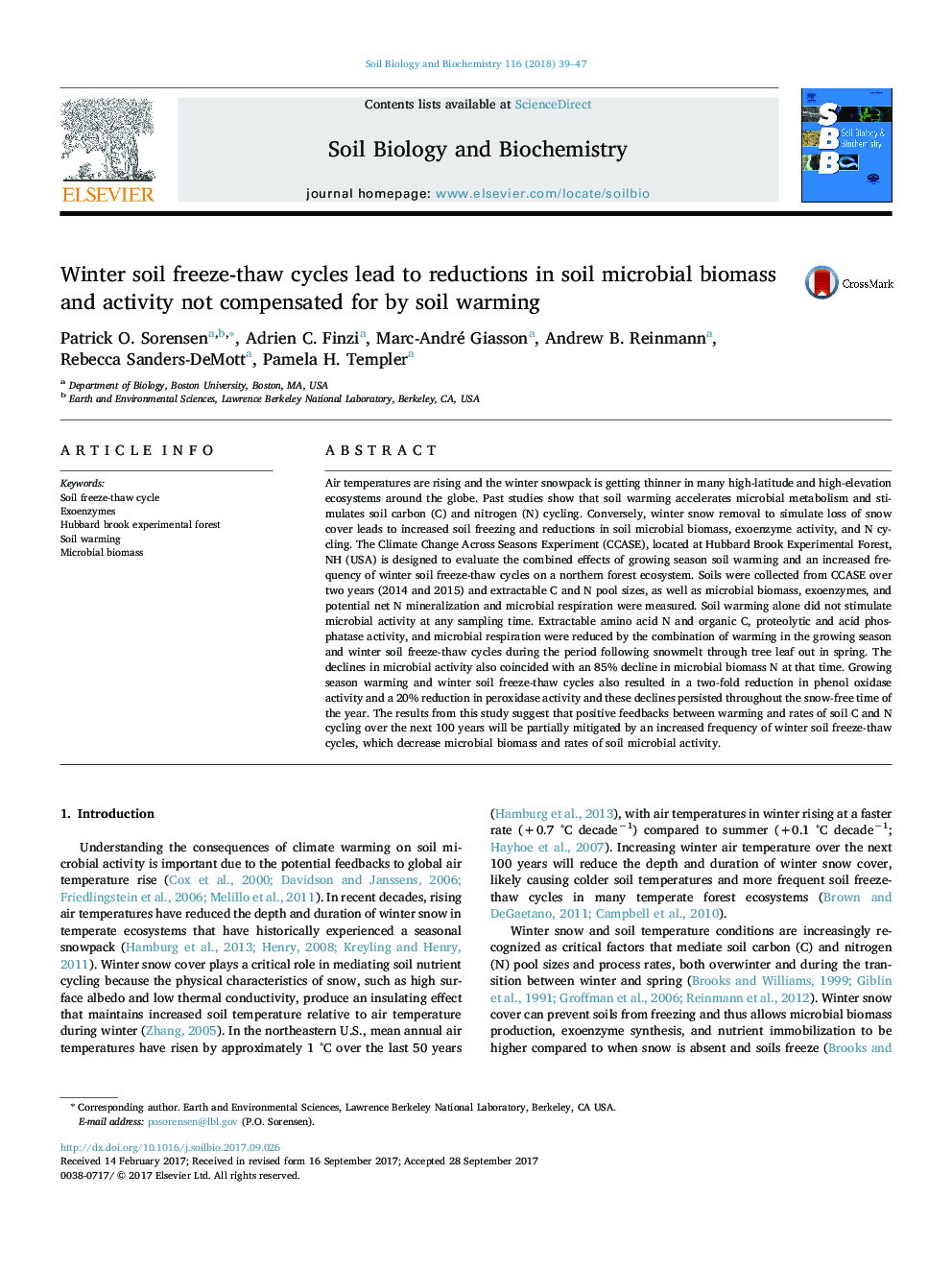| کد مقاله | کد نشریه | سال انتشار | مقاله انگلیسی | نسخه تمام متن |
|---|---|---|---|---|
| 5516207 | 1542568 | 2018 | 9 صفحه PDF | دانلود رایگان |
- Winter and summer temperature are rising in many ecosystems with a seasonal snowpack.
- The effects of soil warming combined with winter soil freeze-thaw cycles are unknown.
- Soil warming alone did not stimulate soil microbial biomass or activity.
- Winter soil freeze-thaw reduced exoenzyme activity, which was not offset by warming.
- Winter soil freeze-thaw may partially mitigate effects of rising air temperature.
Air temperatures are rising and the winter snowpack is getting thinner in many high-latitude and high-elevation ecosystems around the globe. Past studies show that soil warming accelerates microbial metabolism and stimulates soil carbon (C) and nitrogen (N) cycling. Conversely, winter snow removal to simulate loss of snow cover leads to increased soil freezing and reductions in soil microbial biomass, exoenzyme activity, and N cycling. The Climate Change Across Seasons Experiment (CCASE), located at Hubbard Brook Experimental Forest, NH (USA) is designed to evaluate the combined effects of growing season soil warming and an increased frequency of winter soil freeze-thaw cycles on a northern forest ecosystem. Soils were collected from CCASE over two years (2014 and 2015) and extractable C and N pool sizes, as well as microbial biomass, exoenzymes, and potential net N mineralization and microbial respiration were measured. Soil warming alone did not stimulate microbial activity at any sampling time. Extractable amino acid N and organic C, proteolytic and acid phosphatase activity, and microbial respiration were reduced by the combination of warming in the growing season and winter soil freeze-thaw cycles during the period following snowmelt through tree leaf out in spring. The declines in microbial activity also coincided with an 85% decline in microbial biomass N at that time. Growing season warming and winter soil freeze-thaw cycles also resulted in a two-fold reduction in phenol oxidase activity and a 20% reduction in peroxidase activity and these declines persisted throughout the snow-free time of the year. The results from this study suggest that positive feedbacks between warming and rates of soil C and N cycling over the next 100 years will be partially mitigated by an increased frequency of winter soil freeze-thaw cycles, which decrease microbial biomass and rates of soil microbial activity.
Journal: Soil Biology and Biochemistry - Volume 116, January 2018, Pages 39-47
